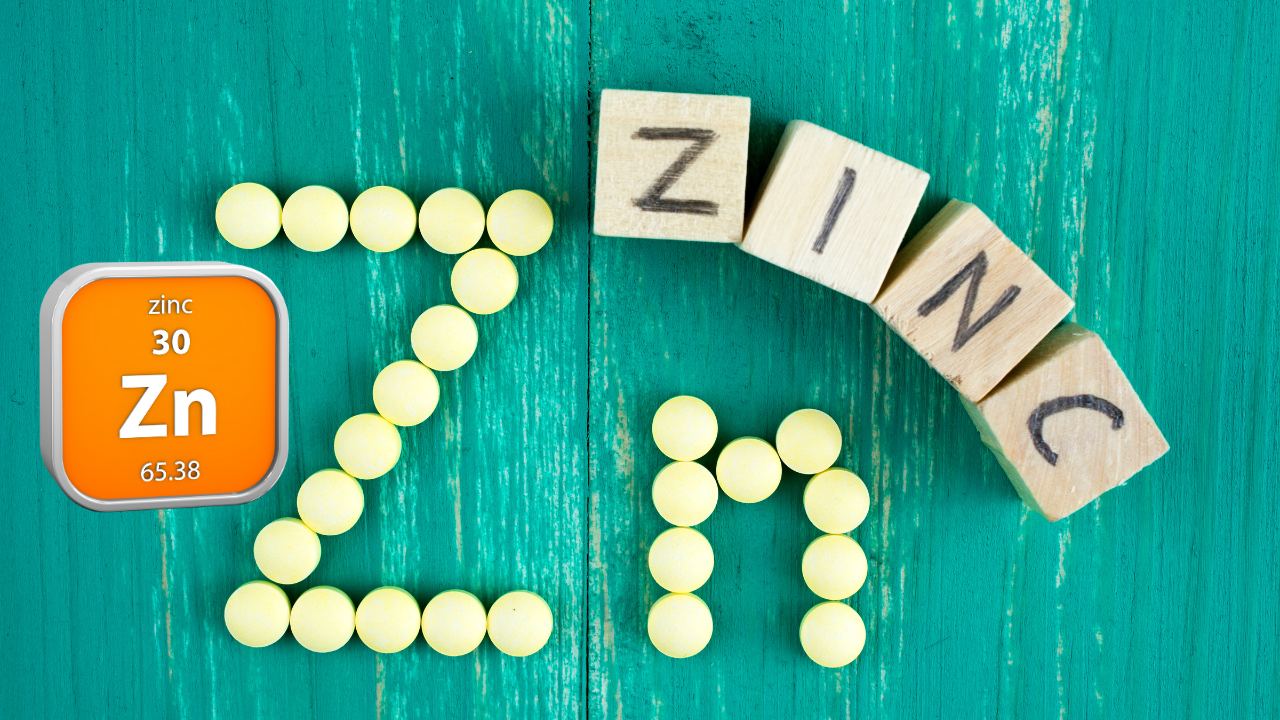Zinc, a trace mineral, may not always receive the attention it deserves in discussions about nutrition and health. However, this unassuming element plays a vital role in various physiological functions in the body. In this blog post, we will delve into the many health benefits of zinc supplements and why they can be an essential addition to your daily routine.
Zinc: An Essential Nutrient
Before we explore its health benefits, let’s grasp the significance of zinc. This mineral is essential for:
- Immune Function: Zinc is a critical element in maintaining a robust immune system, helping the body fend off infections and illnesses.
- Cell Growth and Repair: It plays a pivotal role in cell division, tissue growth, and wound healing.
- Hormone Regulation: Zinc is involved in the production and regulation of hormones, including those related to growth and development.
- Sense of Taste and Smell: It contributes to the function of taste and smell receptors.
- DNA Synthesis: Zinc is required for DNA synthesis, a fundamental process for cell replication and repair.
The Health Benefits of Zinc Supplements
Now that we recognize its importance let’s explore the numerous health benefits of zinc supplements:
1. Immune System Support
Zinc is renowned for its immune-boosting properties. It helps produce and activate immune cells, making it a crucial element in the body’s defense against infections and illnesses. Zinc supplements are commonly taken to reduce the duration and severity of colds.
2. Wound Healing
Zinc plays a fundamental role in wound healing. It aids in the production of collagen, a protein essential for skin repair. Zinc supplements can accelerate the healing process for wounds, burns, and surgical incisions.
3. Skin Health
Zinc is often used to promote healthy skin. It can help manage skin conditions such as acne and eczema. Additionally, zinc supplements may be beneficial for individuals with chronic skin conditions like psoriasis.
4. Sense of Taste and Smell
Zinc deficiency can lead to a reduced sense of taste and smell. Supplementing with zinc can help restore these sensory functions, enhancing the enjoyment of food and overall well-being.
5. Cognitive Function
Emerging research suggests that zinc may play a role in cognitive function and mental well-being. Some studies have explored its potential to improve memory and mood regulation.
6. Hormone Regulation
Zinc is essential for hormone regulation and production, particularly sex hormones like testosterone. Adequate zinc levels can support reproductive health and overall hormonal balance.
7. Eye Health
Zinc is found in high concentrations in the eyes, particularly the retina. It may help protect against age-related macular degeneration (AMD) and support general eye health.
Incorporating Zinc Supplements
While zinc is readily available in various foods, some individuals may benefit from zinc supplements, especially if they have a deficiency or specific health concerns. However, it’s crucial to consult with a healthcare professional before starting any supplementation regimen. They can assess your zinc levels and recommend the appropriate dosage.
Zinc-Rich Foods
If you prefer to obtain zinc through your diet, consider including zinc-rich foods in your meals. Excellent dietary sources of zinc include:
- Meat: Beef, pork, and lamb.
- Poultry: Chicken and turkey.
- Seafood: Oysters, crab, and lobster.
- Legumes: Chickpeas, lentils, and beans.
- Nuts and Seeds: Pumpkin seeds, cashews, and almonds.
- Dairy: Milk, cheese, and yogurt.
Conclusion
Zinc supplements can offer a range of health benefits, from immune system support and wound healing to cognitive function and hormone regulation. While zinc is crucial for overall well-being, it’s essential to use supplements as directed by a healthcare professional to avoid excessive intake. Whether through supplements or dietary choices, ensuring you meet your zinc needs is a small but significant step toward optimizing your health and vitality.



